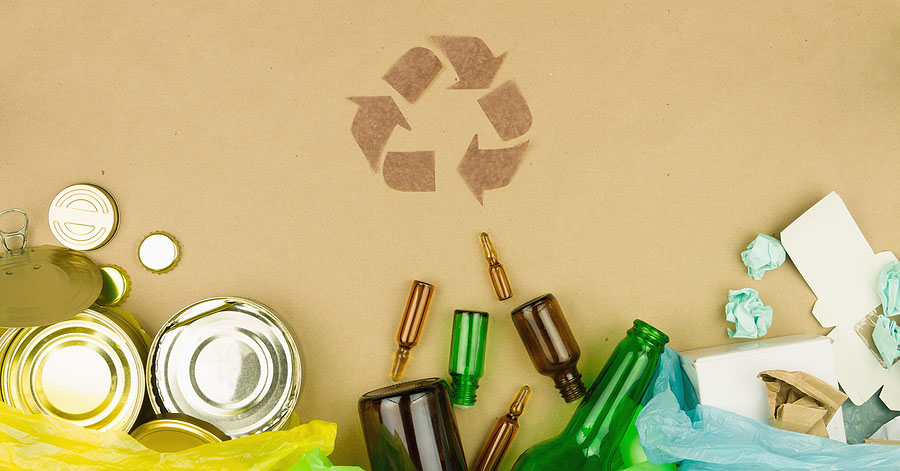Businesses today face increasing pressure to manage waste effectively while reducing their environmental impact. As waste generation continues to rise, traditional methods of disposal are no longer sustainable.
Compactors, which compress waste to reduce its volume, have emerged as a practical and environmentally friendly solution.
In this article, we explore the environmental benefits of using compactors for waste management and how they can help businesses achieve their sustainability goals while optimizing operations.
Understanding Compactors for Waste Management
What Are Compactors?
Compactors are machines designed to compress waste materials into smaller, denser units, making disposal and recycling more efficient. There are several types of compactors tailored to different business needs:
- Stationary Compactors: Ideal for dry waste in large volumes, such as cardboard, paper, or plastics.
- Self-Contained Compactors: Designed for wet or mixed waste, such as food waste, to prevent leaks and odors.
- Specialized Compactors: For specific materials like foam or textiles, ensuring tailored waste solutions for unique industries.
By selecting the right type of compactor, businesses can significantly streamline their waste management processes.
How Compactors Work
The compacting process involves applying force to compress waste into smaller volumes. This is achieved through hydraulic or pneumatic systems, which pack waste tightly, reducing the amount of space it occupies. For businesses, this means fewer trips to disposal facilities, reduced waste handling costs, and a smaller environmental footprint.
The Environmental Benefits of Using Compactors
Reducing Landfill Contributions
Landfills are a major source of methane emissions, a potent greenhouse gas. By compacting waste, businesses can significantly reduce the volume of waste sent to landfills. This not only extends the lifespan of landfills but also minimizes the environmental impact associated with methane emissions.
For example, a business using a compactor for waste management may see a 50-75% reduction in the volume of waste transported to landfills, effectively cutting down on the environmental harm caused by traditional disposal methods.
Promoting Recycling Efficiency
Compactors are often compatible with waste segregation practices, making it easier to sort recyclable materials from general waste. Businesses that prioritize recycling can use compactors to handle materials like cardboard, plastic, and metal, ensuring these resources are reintroduced into the production cycle instead of being discarded.
Higher recycling rates reduce the demand for virgin materials, conserving natural resources and lowering energy consumption associated with manufacturing.
Lowering Carbon Footprint of Waste Transport
Transportation is a significant contributor to greenhouse gas emissions in waste management. Compactors reduce the number of trips needed to transport waste by compressing it into smaller volumes. For example, a business might cut its waste-hauling frequency in half, leading to significant reductions in fuel consumption and emissions.
Minimizing Litter and Pollution
Improperly handled waste can lead to litter, water contamination, and soil pollution. Compacted waste is easier to secure during transportation, reducing the risk of spillage. This helps maintain cleaner surroundings and prevents pollutants from entering ecosystems, enhancing overall environmental health.
Cost-Effective and Environmental Synergy
Financial Savings with Environmental Payoff
Using compactors for waste management doesn’t just benefit the environment; it also offers financial advantages. Businesses save on hauling costs by reducing the frequency of waste pickups, while compacting waste minimizes the energy used in handling and transporting materials. This dual benefit makes compactors a cost-effective solution with a meaningful environmental impact.
Extended Lifespan of Landfills
Landfills are valuable but finite resources. By reducing the volume of waste sent to landfills, compactors help slow their saturation rates. This not only benefits businesses by keeping disposal costs in check but also supports local ecosystems by reducing the need for new landfill sites.
Choosing the Right Compactor for Maximum Impact
Factors to Consider
Selecting the right compactor is essential for maximizing its benefits. Businesses should consider:
- Waste Type and Volume: Dry waste, wet waste, or recyclables each require specific compactor types.
- Available Space: Ensuring sufficient room for installation and operation.
- Environmental Goals: Aligning the choice of equipment with sustainability objectives.
Advanced Features to Look For
Modern compactors come with advanced features that enhance their efficiency and environmental impact:
- Energy-Efficient Motors: Reduce power consumption during operation.
- Automated Systems: Optimize compaction levels to maximize volume reduction.
- Recycling Integration: Streamlined segregation and compacting for recyclable materials.
By choosing a compactor with these features, businesses can improve their waste management efficiency and sustainability.
Nanoia Recycling Equipment: Your Partner in Waste Management Solutions
At Nanoia Recycling Equipment, we understand that effective waste management is more than just having the right equipment—it’s about delivering comprehensive solutions. We offer a wide range of compactors, balers, and crushers designed to meet the unique needs of businesses across industries.
Our services include:
- Custom Design and Fabrication: Tailored solutions that fit your specific requirements.
- Delivery and Installation: Seamless setup to get your operations running smoothly.
- Financing Options: Flexible plans to suit your budget.
- Repair and Maintenance: Ensuring your equipment operates efficiently for years to come.
With our expertise, you can trust us to guide you in choosing the right compactor to reduce your environmental footprint and optimize your waste management processes.
Ready to take the next step in sustainable waste management? Contact Nanoia Recycling Equipment today to learn how our compactors for waste management can help your business achieve its environmental and operational goals.






